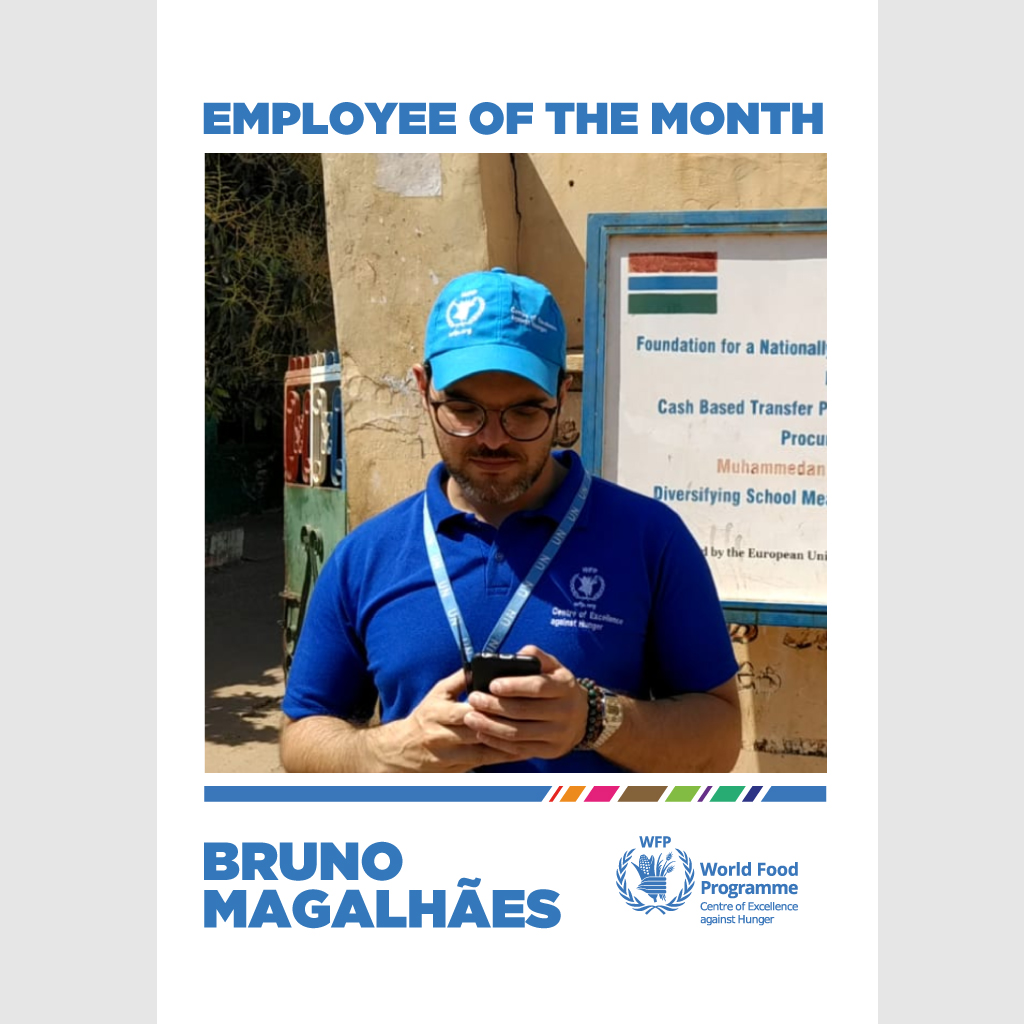
In high school, Bruno had the opportunity to witness the preparation of an important United Nations event for a few hours. “It was just before the General Assembly and I was amazed by all that,” he says. His desire, at that time, was to be a journalist. But during the visit, he came across an environment that won him over.
“We entered the building and saw all those documents being prepared. I don’t know what happened, but at that moment I thought it would be more fun to be the person writing those documents, and not necessarily to be the person who covers and comments on those activities”, he recalls.
And that’s when Bruno Magalhães – who has now been part of the Programme team at the WFP Centre of Excellence against Hunger Brazil for four years – decided to study International Relations. He grew up in São Paulo but moved to Florianópolis to study at the Federal University of Santa Catarina. During this period, he organised several Model United Nations (MUN) events.
“I started to understand what the role of an international organization was, and the work of the UN and other intergovernmental organizations caught my attention. I also realised that International Relations go far beyond foreign trade or diplomacy”, says Bruno, who moved to Brasília for his Masters’ degree at the University of Brasília.
Working at the UN
His first job at the United Nations was as an intern in the Programmes and Communication division of the United Nations Office on Drugs and Crime (UNODC). “That’s when I realised that this is what I like to do and know how to do well, so I decided to invest in it”. As he was already working as a researcher during his Masters’ degree, he was able to join other organisations for short internships during university breaks, such as the International Policy Centre for Inclusive Growth (IPC-IG/UNDP).
At the end of his Masters’, the WFP Centre of Excellence Brazil was looking for an intern to assist in the celebrations marking the five years of the Centre. Centre’s foundation. “During this period, several delegations visited the Centre in Brazil and the programme team travelled often to other countries, so I started to help the team in providing technical support and also in follow-up processes with WFP headquarters”, he recalls.
Today Bruno works with strategic planning and reporting, also providing technical support to countries in Africa and Asia, especially in the areas of South-South cooperation and capacity building.
Learning
When reflecting on important moments in these four years of work at the WFP, Bruno recalls the experience he had with supporting the Gambia country office in a resource mobilisation process, something he had never done before. “I quickly realised why I was involved in it, so I had to quickly adapt. It was an interesting learning experience”.
It was also in The Gambia that Bruno saw the result of his work up close. “I visited schools and ministries, saw that the policies designed with the support of our office are actually being implemented. There I was able to see the whole process and realise that our actions here had an impact across the ocean. It is very rewarding.”





